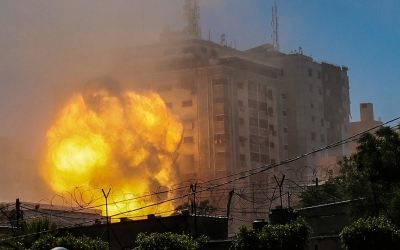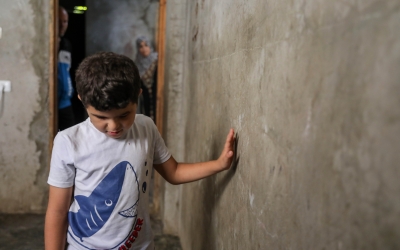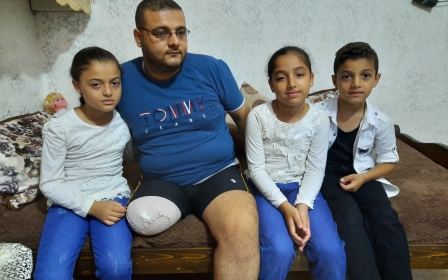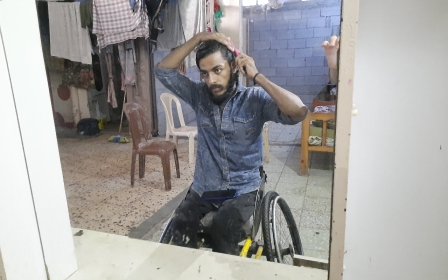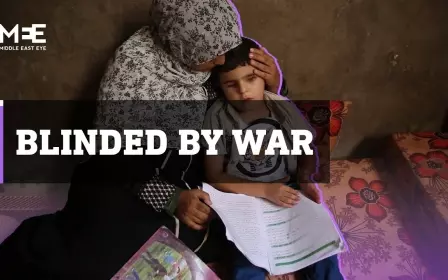Bombing of media tower in Gaza hurt Israel's image, says army investigator
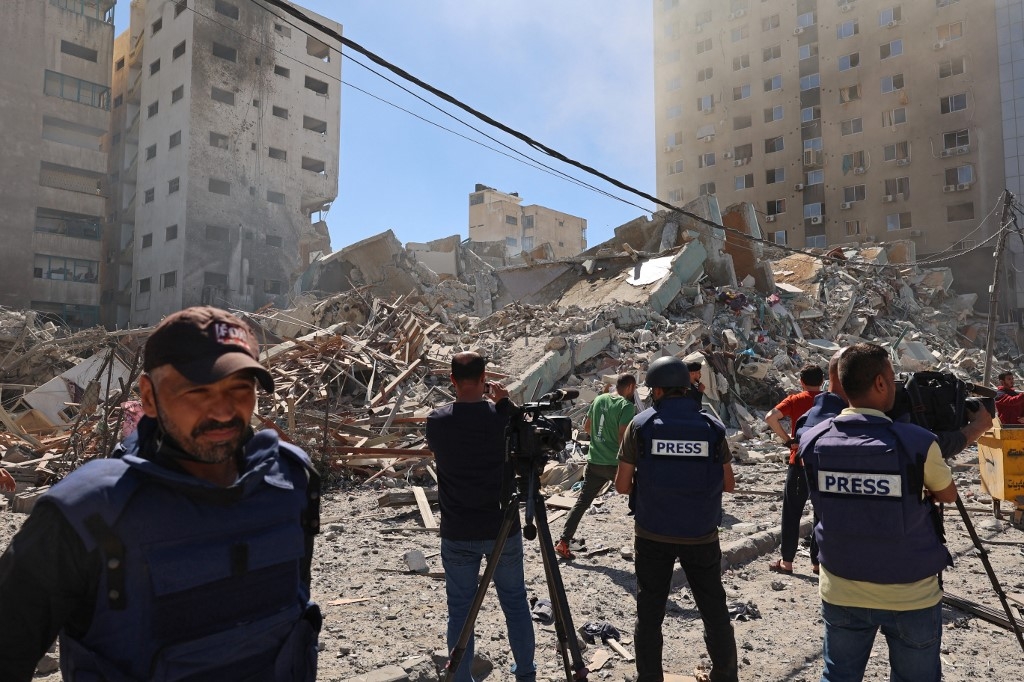
A former Israeli general has said that his investigation into Israel's air strike attack on a tower housing media offices in the Gaza Strip in May caused more damage to Israel’s image than it provided operational benefit.
Retired Major General Nitzan Alon, who led an investigation into the incident before leaving the military, said the bombing, which destroyed offices used by the Associated Press, Al Jazeera, Middle East Eye and at least four other agencies, amounted to an “own goal", a term used to describe a player kicking the ball into their own team's net in football.
New MEE newsletter: Jerusalem Dispatch
Sign up to get the latest insights and analysis on Israel-Palestine, alongside Turkey Unpacked and other MEE newsletters
"Bringing down the tower with the AP offices was equivalent to a self-inflicted public relations terror attack and an own goal, in our view," said Alon during a conference hosted by Tel Aviv’s Institute for National Security Studies about the importance of public perception during military conflicts.
Alon, who, according to the Times of Israel, led the military’s investigation into the public relations-related issues connected to Israel's recent bombardment, noted the immediate international criticism garnered by the strike on the 11-storey al-Jalaa tower in Gaza City.
'Diplomatic damage'
"Not everyone in the [Israeli army] believes this, but I am convinced that this was a mistake. The operational benefit was not worth the damage that it caused diplomatically and in terms of perception," he said.
Israel had claimed that the tower, which also housed residential units and businesses, was used by Hamas to block GPS signals, affecting Israel's Iron Dome missile defence system.
Media professionals using the offices to broadcast denied any knowledge of a Hamas presence in the building, instead accusing Israel of targeting the press. Just after the bombing, Gary Pruitt, president and CEO of the AP, which had a bureau in the building for 15 years, said the company "had no sense Hamas was there". Meanwhile, AP chief Sally Buzbee called for an independent investigation and Reporters Without Borders called on the International Criminal Court (ICC) to investigate.
At the time, US Secretary of State Antony Blinken also said that he had not seen any Israeli evidence of Hamas operating in the building.
Due in part to the international reaction to the strike on the tower, Israel's military began working on public advocacy efforts with its operational actions following its offensive in May, which resulted in the deaths of 243 Palestinians, including 66 children.
"I think that the [Israeli army's] success in terms of public relations was very, very limited. There is a long list of lessons, many that have to do with intra-organisational communication," Alon said during Sunday's conference.
There is no single independent entity responsible for investigating Israel’s justifications for bombing civilian targets in Gaza despite the frequency in which such attacks take place.
Israel also routinely denies United Nations investigators access to both Israeli and Palestinian territory.
'War crimes'
In August, Human Rights Watch (HRW) released a report that said the strike on al-Jalaa tower, along with three others, may have constituted war crimes.
"The apparently unlawful Israeli strikes on four high-rise towers in Gaza City caused serious, lasting harm for countless Palestinians who lived, worked, shopped, or benefited from businesses based there," said Richard Weir, crisis and conflict researcher at HRW, in a statement.
The group also criticised Israel for repeatedly making allegations against the Hamas movement "without providing evidence" regarding its alleged use of residential areas for military matters.
"Throughout the May hostilities, unlawful Israeli strikes not only killed many civilians, but also destroyed high-rise towers, wiping out scores of businesses and homes, upending the lives of thousands of Palestinians," Weir said in August.
"Donor funding alone will not rebuild Gaza. The crushing closure of the Gaza Strip needs to end, along with the impunity that fuels ongoing serious abuses," he continued.
In addition to the hundreds killed and thousands injured, Israel's 11-day offensive on the besieged strip left 1,500 businesses damaged, causing a major hit to Gaza's economy.
Gaza's Higher Governmental Committee for Reconstruction estimated Israel's campaign resulted in more than $479m-worth of losses.
Middle East Eye delivers independent and unrivalled coverage and analysis of the Middle East, North Africa and beyond. To learn more about republishing this content and the associated fees, please fill out this form. More about MEE can be found here.


